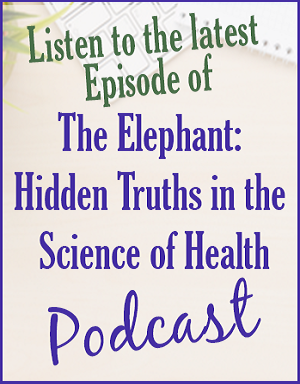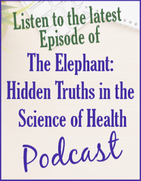Larry A. Law
Loss of Smell/Taste Not Due to COVID Virus but Rather the mRNA Vaccine Injection
The Vaccine Adverse Event Reporting System (VAERS) registers over 5,000 cases of anosimia and over 6,000 cases of ageusia following mRNA shots. While the symptoms are similar to long-COVID loss of smell and taste, the mechanisms are different. In long-COVID patients, impairment of smell and taste is due to internal damage to the actual cells responsible for detecting smell and taste during the acute phase of COVID-19. Vaccine-induced injury is due to the COVID-19 mRNA vaccines delivering lipid nanoparticles into the arm muscle and bloodstream. These lipid-coated nanoparticles are able to enter cells much more efficiently than the COVID-19 virus. Once inside the cells, mRNA molecules force the cells to produce spike glycoproteins (a toxic structure). These synthetically-created, spike glycoproteins on the glycocalyx (cell membrane) trigger inflammatory and oxidative stress in nearby cells and tissues, creating long-COVID symptoms and vaccine-related side-effects.
Smell and Taste Coalesce in the Brain
The olfactory system has the major role in both smell and taste--80% of what we experience as taste is really due to smell. The connection between the two can be subtle, but it all comes together in the brain. Nerves play a critical part in relaying information to the brain. Microclots can interrupt the flow of blood to the nerves and reduce or damage the ability to use both senses. Microclots are observed in chronic conditions like diabetes and Parkinson's disease, but the clots generated by the vaccine-created spike glycoproteins tend to be larger and much more resistant to breakdown, according to Dr. Etheresia Pretorius, a scientist and professor at Stellenbosch University.
Treatment Options
1. Ivermectin is the most effective first-line treatment option for both long-COVID and vaccine-induced symptoms. Dr. Pierre Kory, a critical care pulmonary specialist, has achieved improvements in 70-80% of his patients after administering Ivermectin. Ivermectin suppresses inflammation by impeding the production of inflammatory substances and modulating the immune system to restore a balanced ratio inflammatory and anti-inflammatory agents. Ivermectin fulfills at least 20 roles in preventing COVID-19 infection and mitigating viral damage. It also binds the spike glycoprotein and COVID-19 viruses, aiding in their clearance from the body. Furthermore, it contributes to optimal cellular function by facilitating energy production in the mitochondria. 2. Low-dose Naltrexone, typically used to address alcohol and opioid abuse, exhibits strong anti-inflammatory properties at low doses (1 to 5 milligrams per pill). Before its use in long-COVID, doctors and clinicians used it off-label to treat fibromyalgia, Crohn's disease, and multiple sclerosis. It demonstrates promise in treating neuroinflammation and neuropathies and thus offers powerful help in resolving problems related to smell and taste. 3. Omega-3 fatty acids are essential components of cell membranes (glycocalyx) and possess anti-inflammatory properties. They exhibit a protective effect on neurons and help prevent damage to blood vessels. 4. Anti-clotting therapies, including the anticoagulant apixaban, help prevent the formation of blood clots associated with COVID-19 and the mRNA vaccine shots. Anti-platelet medications like clopidogrel and aspirin reduce the risk of clot formation. Also, nattokinase, a more natural supplement derived from soybeans, has been shown by Japanese researchers to degrade the spike glycoprotein manufactured by the mRNA vaccine. In addition, vitamin D, B12 and zinc are helpful supplements in restoring milder symptoms of loss of smell and taste. 5. Nicotine patch documented in a study published January 18, 2023. Researchers hypothesized that nicotine could displace the virus from a nicotinic acetylcholine (nAChR) receptor attachment (see image below) and pave the way for unimpaired cholinergic signal transmission (a fundamental mechanism used by sensory systems to send neural information from the skin to the central nervous system). Treating several individuals suffering from post-COVID-19 syndrome with a nicotine patch application, researchers witnessed improvements ranging from immediate and substantial to complete remission in a matter of days. There is real hope for those who suffer from the effects of long-COVID and mRNA vaccines. Maintaining a strong immune system capable of fighting infection is the best preventative approach. For more help in strengthening your immune system, see my book: There's An Elephant in the Room—Exposing Hidden Truths in the Science of Health.
2 Comments
Krystal
7/11/2023 08:46:22 am
Will those treatment options work if smell and taste have been gone for 18 months? What would you recommend doing to restore it?
Reply
Larry Law
7/12/2023 09:24:15 pm
Hi Krystal,
Reply
Leave a Reply. |
BlogArchives
July 2024
Categories
All
|
© Angie's Option GRM. All rights reserved.









 RSS Feed
RSS Feed

